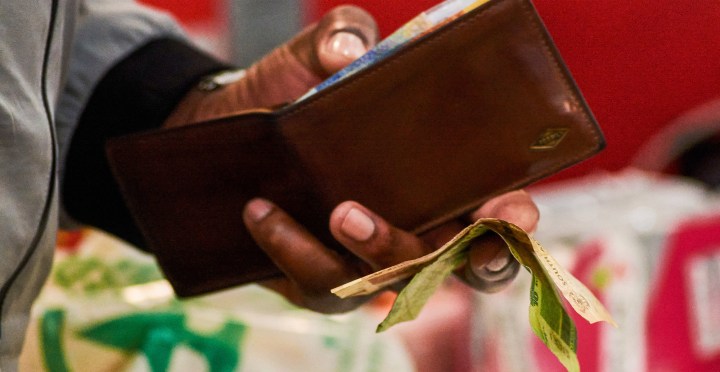BLEAK OUTLOOK
The average South African ‘is likely to become poorer in 2023’

After breaking six months of declines in December, the BankservAfrica Economic Transactions Index continued to improve in January. Yet, despite this positive movement, BankservAfrica warns that the improvement is likely to be ‘only a blip’ as the country continues to struggle with unabated rolling blackouts, rising interest rates and high inflation.
The BankservAfrica Economic Transactions Index (Beti) improved to an index level of 132.7 in January, showing a monthly increase of 0.4% and 0.3% year-on-year growth — though significantly lower than the all-time high of 143.5 in May last year.
Shergeran Naidoo, BankservAfrica’s head of stakeholder engagements, notes that January was “fairly grim” with the recent wave of downward revisions to economic growth forecasts for South Africa. The South African Reserve Bank recently revised its growth forecast for 2023 from 1.1% to 0.3% for 2023. Naidoo says with average population growth running closer to 1.3% per annum, these growth rates imply that on a per capita basis, the average South African citizen will become poorer in 2023.
Like the Beti, other indicators held up reasonably well in January, except for the S&P Global South Africa Purchasing Managers Index (PMI), which shows business activity contracted to 48.7 points in January, registering below the 50.0 mark for the first time in three months. The Absa Purchasing Managers’ Index moved sideways at 53.0 in January 2023 vs 53.1 in December.
The pace of vehicle sales growth moderated somewhat in January but remains 4.8% higher than a year earlier. Lara Hodes, an economist at Investec Bank, says persistent rolling blackouts, with producers having to run expensive diesel-powered generators, continue to weigh on producers’ overall cost base.
Visit Daily Maverick’s home page for more news, analysis and investigations
“The employment index trended lower in January (below 50.0) following a strong uptick in December, suggesting that any improvement in staffing levels at the end of the year was temporary. A pick-up in sentiment and accordingly investment is needed to drive sustainable growth and significant job creation,” she says.
Globally, the latest JP Morgan Global Composite PMI — compiled by S&P Global across more than 40 economies and sponsored by JP Morgan — recorded a second successive monthly rise that has helped to allay concerns of a worldwide recession. At 49.8 in January 2023, up from 48.2 in December, the Global PMI signalled the smallest drop in output observed over the past six months.
The standardised nominal value of transactions cleared through BankservAfrica in January was R1.04-trillion, down from R1.3-trillion in December. The number of transactions fell from an all-time high of 143.6 million in December to 135.7 million in January 2023.
“While the improvement in the Beti is encouraging, stormy clouds are gathering, with many indications showing we could expect ‘more of the same’ in 2023, as the main challenges prevail,” says independent economist Elize Kruger.
There is no indication that load shedding will abate any time soon, and households will remain under pressure due to elevated inflation levels, interest rates and a tight labour market environment. DM/BM















 Become an Insider
Become an Insider
Comments - Please login in order to comment.